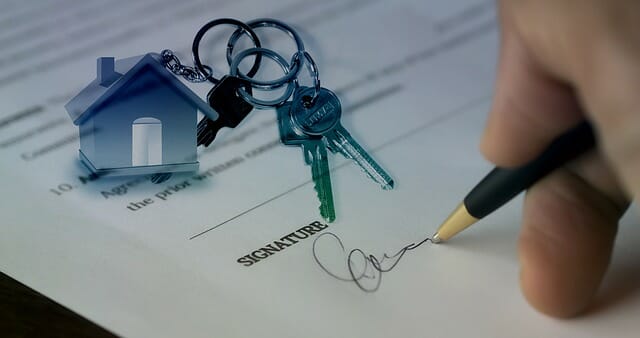At some point, the daily grind of being a landlord can take its toll on you. From handling tenant complaints to placement, collections, security… the list is endless. The workload is even worse for those managing multiple units. That’s why most landlord opt to hire a property manager. It’s convenient, time-saving and effective.
But, hiring a property manager isn’t a perfect solution as it comes with its own pros and cons. You might find that you’re unhappy with some of your property manager’s practices or methods. If you ever want to file a complaint against your property manager, read the following guide first so you can do it right.
How to File a Complaint Against Your Property Manager
No-one wants to file a complaint against their property manager, but sometimes it’s unavoidable. Here are some steps you must follow to file a complaint against your property manager:
– Speak to your property manager:
Before you file a legal complaint against someone, you must let them know in writing about your intentions to do so. Give them fair warning that’ll motivate them into action and help you avoid the whole investigation process. Having everything in writing will also strengthen your case if you do eventually go to court. Be sure to make copies of everything as well just to be on the safe side. If your property manager seems complacent about the matter or does not respond altogether, move on to the next step.
– Make sure you have the right documentation:
Since you’re filing a legal complaint, it’s important to provide relevant documentation to back your claims. This includes proof of correspondence with your property manager about the issue. Make sure to always communicate with your property manager in writing through emails, letters, and even text message. That way, you’ll have hard evidence of promises they made or refusal to fix the problem, etc.
– File your complaint:
The next step is to file a complaint against your property manager. It’s important to make sure that the complaint is in writing. This eliminates the possibility of your message getting misconstrued. Also, file your complaint to the right department or agency.
For instance, if you’re complaining about an unresolved pest problem you must contact your province’s Health Department. If you’re not familiar with your provincial offices, look them up on Google to find their contact details and call them. Then, send them an email with important information such as your address, names and a thorough description of the problem. The department will investigate your claim by inspecting your home. Once they’ve found said damage, they’ll serve your property manager with a Notice of Violation. Your property manager should take care of the problem to avoid further action. Failure to do so can lead to the department taking civil action or slapping the manager with levy fines.
How to Write a Complaint Letter
A complaint letter must be professionally written and easy to understand, no matter what the subject is about. Like most people, you may need some help here because not everyone is a wordsmith.
Most of the tips provided below are designed to help you write an effective letter that’ll get you the results you want. Here are some tips on how to write an effective complaint letter:
– Be calm:
Before you write your letter, make sure to calm down. You should never write a complaint letter while you’re still angry. Wait until you calm down before you start writing so that the letter will come out sounding calm and collected. Keep things respectful and factual to get what you want.
– Format the letter properly:
Calmly put your name and address on the top of the page. Center the text so it looks like a property letterhead. Skip two lines and put the date on the left-hand side of the page, followed by the company’s address.
Next comes the salutation. If you have a person’s name, write that down. This might be your first correspondence, use the most neutral greeting of dear sir/ madam. After the abbreviation “Re” for regarding, write a single line stating the purpose of the letter.
– Write:
Now you’re ready to write the first paragraph of the letter. It should state the facts of the problem. Describe the fault or failure of the property manager to meet the ordinances of your agreement. On the next paragraph, state how you propose to solve the problem. In other words, what you want the property manager to do. You may attach a copy of your correspondence with your property manager, receipts and other relevant documents to back your claim.
In your final paragraph, sign off with a calm but firm warning you expect action on your complaint within a reasonable amount of time. Refrain from threatening legal action at this early stage. Close the letter with the word “Sincerely” followed by a comma and your name at the bottom.
The Most Common Complaints Against Property Managers
Some of the most common complaints that landlord have against property managers include:
– Too Lenient on Tenants:
You might feel like the property manager is too lenient on tenants, especially with collections and other important issues that affect the value and performance of your property. Perhaps the property manager does not enforce the lease as they should and they side with tenants against the owners. Sometimes, property managers listen to tenant excuses more than they should which opens room for tenants to get away with things they shouldn’t.
– Slow to Resolve Issues:
Does your property manager drag their feet when it comes to resolving issues? This isn’t uncommon. In fact, some companies take weeks and months to resolve a problem that should ordinarily take a few days at most. However, there’s no reason for a property manager to delay any of these processes, with all the technology at their disposal. Thanks to apps like Condo Control Central, property managers can automate pretty much 80% of their work and fast-track most of their processes. Delays mean that the property manager has a problem prioritizing issues correctly and you should voice your concerns about that.
– Rent:
Late rent payment is another major concern for landlords. That’s because most property managers expect you to pay them at the same time each month, regardless of whether tenants pay on time (or at all).
To solve the issue, start by asking your property manager about their rent collection methods. They should be able to tell you when you will get your money and through which methods (i.e. cheque or bank account). You might depend on your monthly rental income to pay your mortgage so delayed payments can affect your credit record in the long run.
– Unauthorized Repairs:
Most property management companies should have a reserve for emergency repairs. But, an increasing number of landlords are complaining about companies that carry out repairs without the landlords’s consent or knowledge. Most of these are major repairs that cost upwards of thousands of dollars.
There should b e a clear line of communication between you and your property manager so they’re able to tell you when your property needs repairs.
– Lack of communication:
The single biggest complaint about property managers is the lack of communication. Even in today’s modern world, it’s still difficult to get timely replies via a phone call or email from a property manager. landlords often complain that they don’t get advance notification of problems that should be resolved. That’s why when you’re selecting a property manager; you need someone with experience who will bear this in mind. An experienced property manager will maintain constant communication with you, even if they’re doing a lengthy six-month long repair on your property.
– Poor property maintenance:
Something as simple as a mold problem could escalate into a court case if the property management company you’re working with allows it to fester until it grows into a health hazard for your tenants. Worse yet, your property manager may require you to pay for the damage even though it happened because of their own negligence.




